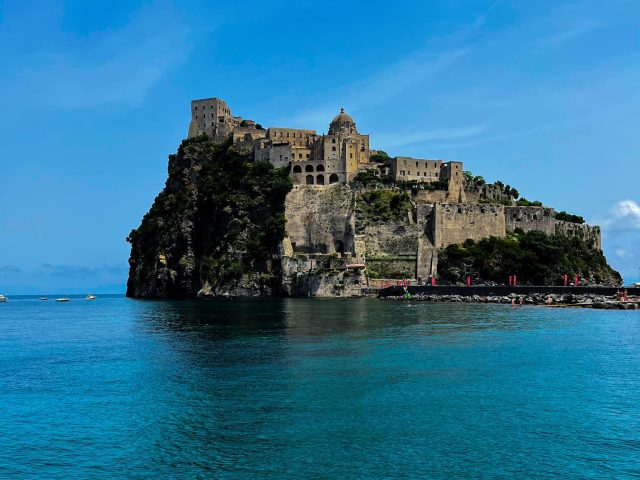
The tourism industry is slowly but surely recovering from the losses caused by global travel restrictions imposed in the wake of the pandemic. France, Spain and Italy are in the top three of Europe’s most visited countries. In a top 10 list of European countries that receive the most tourists, the three countries mentioned are followed by Germany, Greece, Croatia, Portugal, Turkey, the UK and Austria.
Where else could a debate be held on the subject: Tourism a driving force for Europe’s development than in Ischia (Italy), a magnificent island that attracts hundreds of thousands of tourists every year.
European Conservatives gathered over the weekend of June 23-25 on one of Italy’s most beautiful islands, Ischia, the largest island in the Campanian Archipelago, to take part in the fourth conference of the ECR Party’s European Culture Weekend events.
The topic of the debate was, as announced in the programme of the event, an analysis of the current situation of tourism at European level and the role of tourism in Europe’s economy. Leading personalities of the political and economic life from all over Europe had the chance to convey the trend in the tourism industry and related services (air, sea, rail and, last but not least, road infrastructure), an extremely important sector of the economy of many countries, especially those in southern Europe. The daily challenges of the European Union with regard to this industry called tourism are manifold but among those addressed during the conference in Ischia were: sustainability, cultural preservation and innovation in tourism.
On the first evening of the event those present had the opportunity to socialize in the magnificent setting offered by the location chosen by the organizers, namely the Continental Therme Hotel in Ischia. During this first evening, guests enjoyed Italian cuisine to the sound of live music.
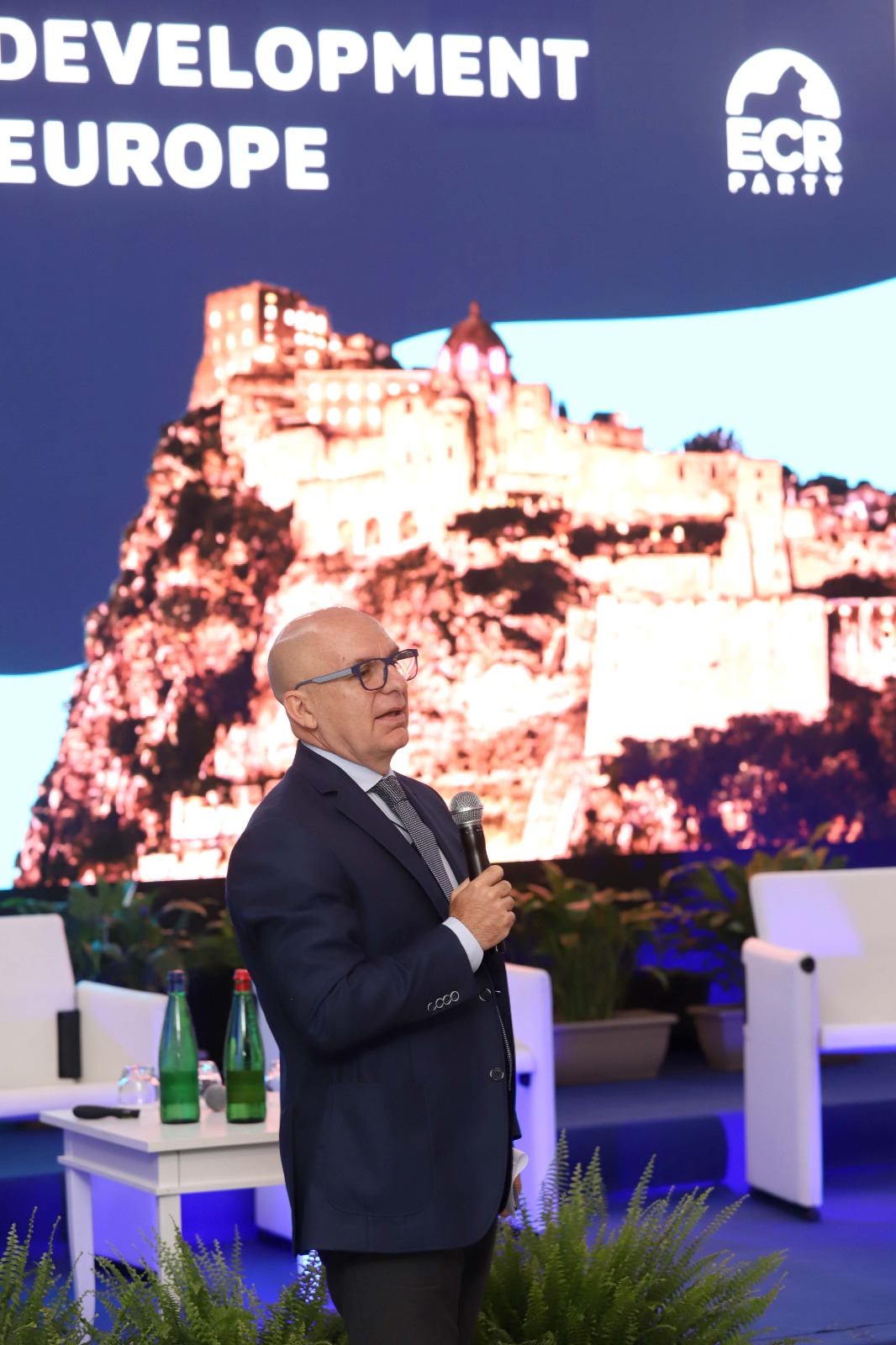
Conference: Tourism an engine for Europe’s development was opened by Antonio Giordano, Secretary General of ECR Party.
“Tourism is one of Europe’s key issues. The attractions of our nations attract millions of tourists from all over the world, just as every European citizen wants to explore every corner of our continent. This generates one of the most significant industries, showing continuous growth. However, there is a need for coordination between the different sectors that encompass the broader theme of ‘tourism’ and between the different Member States. Moments like this are essential. The ECR Party’s mission is to strengthen the ties that bind us together as Conservatives. This is why our events are inclusive and open to young people, families and enthusiasts,” said Antonio Giordano, Secretary General of the ECR Party.
The debates started with the headline guest numbers. Thus, in the first panel of the day moderated by Domenico Lombardi, economist and columnist, Italy was the subject of discussion: Tourism and culture: business perspective and conservative strategies. The four speakers who debated the sub-topic were: Adela Mirza (President of Alternativa Dreapta, Romania), Barbara Kolm (Vice President Oesterreichische Nationalbank, Austria), Ylenja Lucaselli, (MP, Head of the IDF Budget Committee, Italy) and Barbara Arbitrio (General Manager AMI ITALIA, Italy).
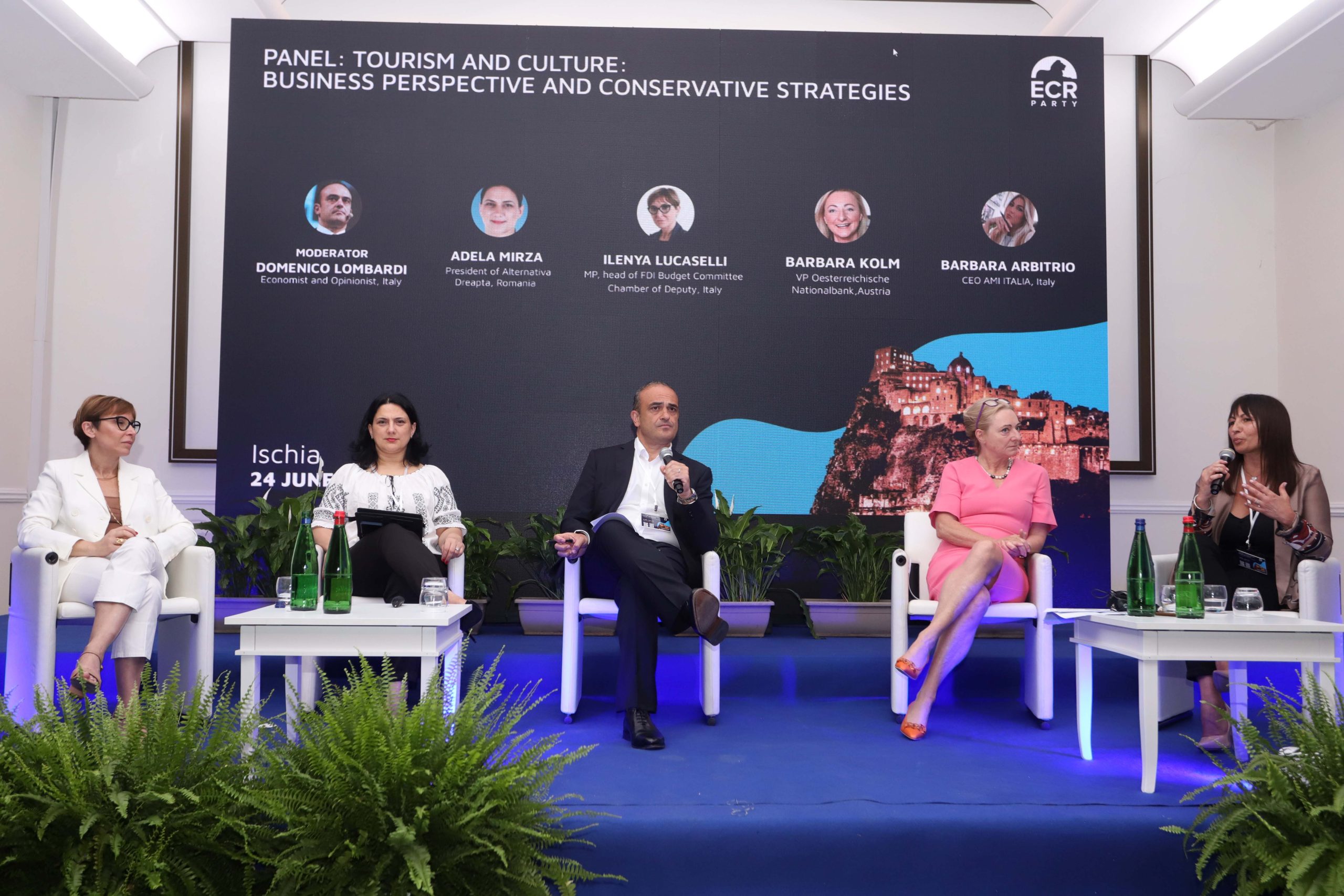
“On the Universal Day of Romanian blouse (ia) I thought I would surprise my Romanians. I wore the national ia in the panel on Tourism where I was a speaker. Tourism promotes, above all, cultural and national identity! Happy birthday, our dear ia!” said Adela Mirza.
The second panel of the day tackled a highly sensitive topic: “Mobility in tourism: the aviation system as a strength”. Gregory Alegi, Aviation journalist had as guests in this second panel discussion Galeazzo Bignami (Deputy Minister of Infrastructure and Transport, Italy), Pasqualino Monti (CEO ENAV S.p.A, Italy), Veronica Pamio (VP External Relations & Sustainability, Aeroporti di Roma, Italy) and Eddie Wilson (CEO Ryanair, Ireland). The conclusion of this panel was that there needs to be coordination between these masses of people who want to get to a holiday destination as quickly as possible. This cannot be done without infrastructure and when we talk about infrastructure, we are talking about facilitating the linking of tourists between airports and hotels or accommodation units. Another issue discussed was the reduction of carbon footprint and aircraft noise. This can only be done through major investments in fleet changes by airlines, which entails huge costs. With the aviation industry having lost billions of euros in the two years of the pandemic (18.5 in 2020 alone), it is unlikely that these investments will be made in the near future.
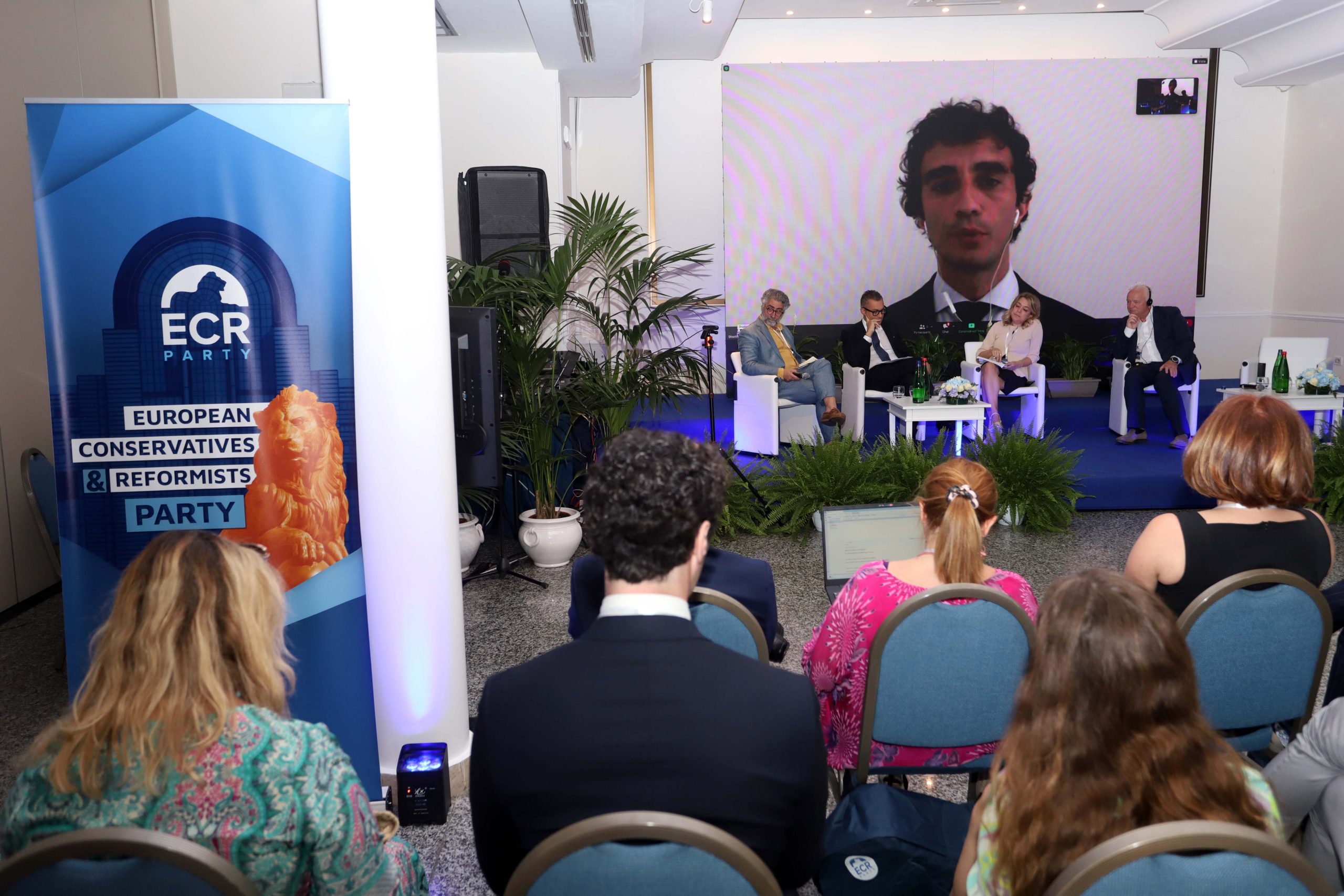
European tourism system: how much influence can the Eu Commission have, was the theme of the third panel moderated by Giancarla Rondinelli (political reporter RAI 1 TG1, Italy). The speakers who addressed the topic “how much influence can the Eu Commission have in the tourism industry?” were Valentina Superti (Director for Tourism in the European Commission (DG GROW), Italy), Tommaso Foti (MP, Chairman of Deputies FDI, Italy), Carlo Fidanza (MEP, Head of FDI delegation, Italy), Marina Lalli (President of Federturismo, Italy) and Tommaso Tanzilli (Member of the Board of Directors of Ferrovie dello Stato, Italy).
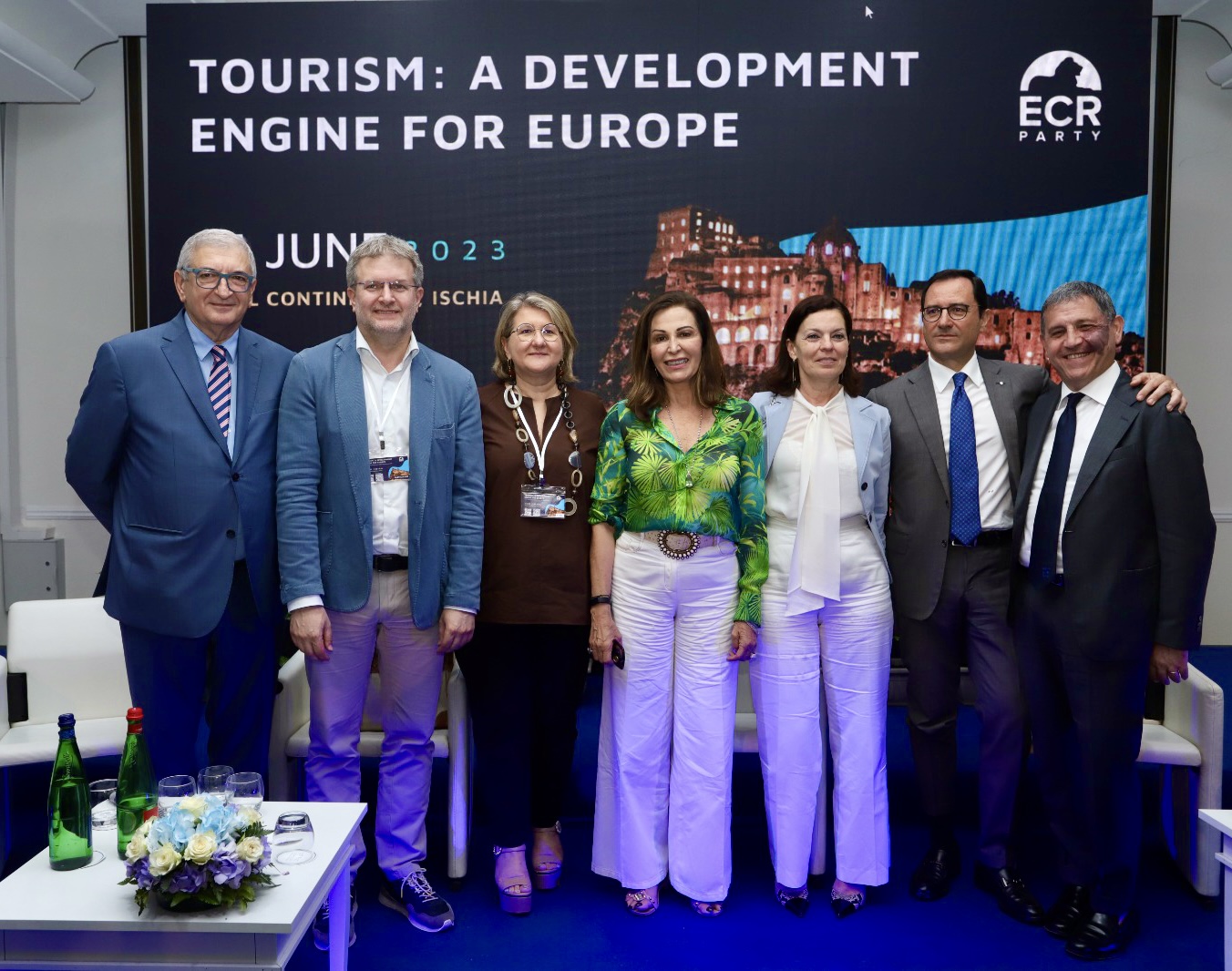
In the spotlight was Daniela Santanché (Minister for Tourism, Italy). Ms Santanché said that, as tourism in Italy takes place 12 months a year, the Italian state cannot afford to lose tourists and the money they spend in Italy through these transport strikes. Santanché suggested that in this situation the government should get involved in all these infrastructure issues, put pressure on transport employers to pay transport workers better and even have state support for transport workers. Italy’s Ministry for Tourism has also said it intends to open new lines of funding to support small tourism entrepreneurs so that Italians can offer high quality holidays to visitors to Italy.
The fourth panel dealt with an extremely important topic: Religious tourism in Europe: itineraries to discover our identity. Donatella Di Nitto (Head of press office Fdi Camera, Italy) moderated the last panel of the day where speakers were: Federico Mollicone (MP, Chairman of the Culture Committee Chamber of Deputy, Italy), Gianluca Caramanna (MP, Advisor to the Minister of Tourism, Italy), Fabio Roscani (MP, Leader of FDI Youth Movement, Italy) and Ladislav Ilcic (MEP, Croatian Sovereignist Party, Croatia).
Ladislav Ilcic stressed that although we are in Pride Month and a thousand people in pajamas are rainbowing the streets, the role of the press is extremely important. Why? Because all the press broadcasts these events, picks up their messages and insists on these events on all media channels. However, the same press doesn’t seem interested in publicizing, for example, if a million people go on pilgrimage to Medjugorje. What is special about Medjugorje? In June 1981, the Blessed Virgin Mary appeared to six children in a small mountain village in Bosnia and Herzegovina named Medjugorje. Identified as the Queen of Peace, she came on a mission of Peace with a message for the world.
As for conservative values, namely family and faith in God, Ladislav Ilcic pointed out that family is one of the biggest consumers of tourism. When the family goes on a holiday, they spend more money than a person who travels alone alone. An example of religious tourism given by Ilcic was that his eldest son met his current wife on one of these organised pilgrimages for young people.
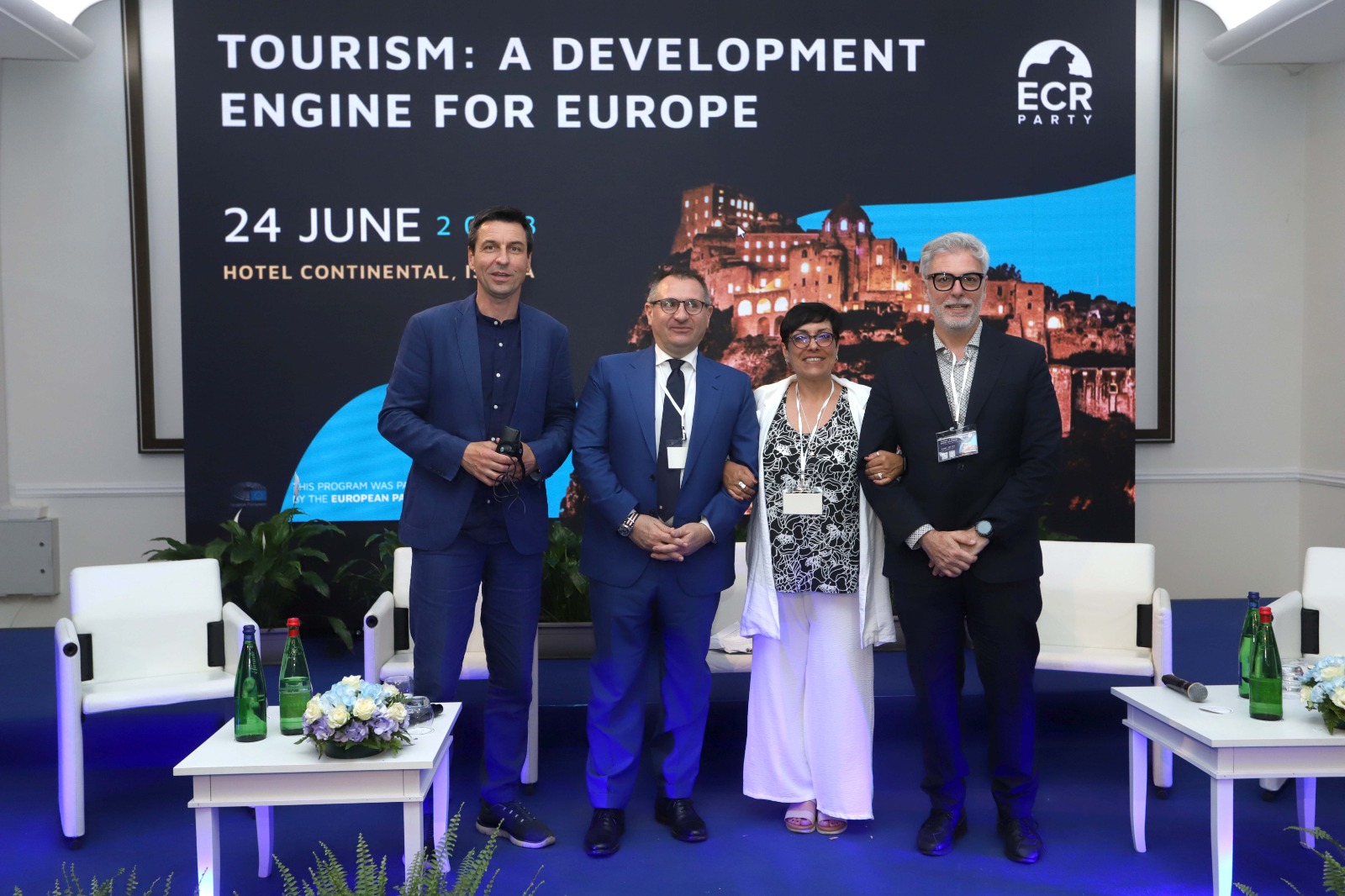
Saturday ended with a festive dinner in a dream location on the Adriatic Sea. The guests were treated to a traditional music recital and an extraordinary fireworks display, in addition to Italian cultural dishes. The 4th European Culture Weekend event organised by ECR Party and partly funded by the European Parliament ended on Sunday with a Tour of Giardini at Mortella, the famous Forio. Those present could admire the famous Mortella garden it used to belong to the famous English composer Sir William Walton, having been designed by architect Russell Page.
Photo by Eugen Olariu



 Subscribe
Subscribe